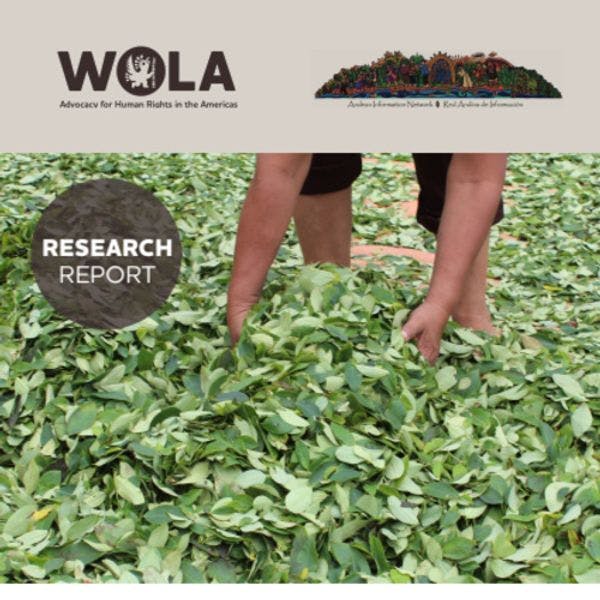Building on progress: Bolivia consolidates achievements in reducing coca and looks to reform decades-old drug law
Bolivia’s program relies on close monitoring to ensure individual cultivators do not exceed their cato, or measured plot of land for permitted coca cultivation. Farmers participate in a biometric registry to facilitate identification and monitoring of production, transport, and sales, effectively ensuring crops are only used for licit products—not cocaine or its derivatives.
At 20,400 hectares of coca under cultivation, Bolivia has nearly reached its goal of 20,000 hectares, the amount considered to be sufficient to supply the traditional and expanding legal markets. Yet while Bolivia’s coca policy is worthy of recognition, this report by WOLA/AIN concludes that the country’s outdated drug law remains unjust and continues to rely on disproportionate punishment for low-level, non-violent drug offenses.
“Sentences for non-violent drug offenses remain disproportionately high—with prison terms rivaling those for homicide,” said Kathryn Ledebur, Executive Director of AIN and the report’s co-author. “Legal reforms currently under review will be essential to ensure that Bolivia’s drug laws are as just as its coca policy. Success will hinge on the implementation of alternatives to incarceration for low-level offenders and the redirection of scarce law enforcement resources to dismantling criminal drug networks.”
Keep up-to-date with drug policy developments by subscribing to the IDPC Monthly Alert.
Downloads
Topics
Regions
Related Profiles
- Washington Office on Latin America (WOLA)
- Kathryn Ledebur
- Coletta Youngers
- Andean Information Network (AIN)
